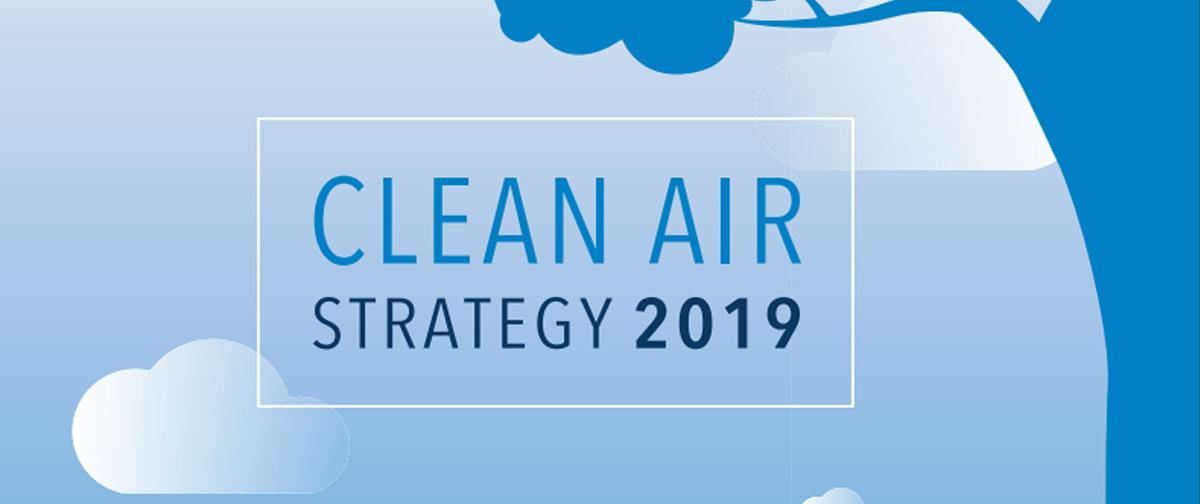Clean Air Strategy 2019: What Does it Mean for the HVAC Industry?

The Clean Air Strategy 2019's ambitions to improve poor air quality have been welcomed by the HVAC industry but many have been left with concerns that it shows a lack of ambition.
As part of the strategy, it has been announced that from 2022 only the most efficient and clean wood burning stoves will be available to consumers.
With the HVAC industry being one of the most affected sectors by the news, some have been left wondering why reducing wet wood pollutants has been given more priority than NOx emissions from domestic boilers.
In response to the strategy, Peter Thom of Green Heat Ltd, an organisation working to raise awareness of energy efficiency said: "Surprisingly, there's no mention of NOx or Carbon emissions from older gas boilers. There is a real opportunity here to get momentum for another boiler scrappage scheme but we need to get the industry mobilised again."
Why Focus on Wood Burning Stoves?
Despite UK air pollution being in decline since 1970, NHS England say that 30% of preventable deaths are ultimately caused by poor air quality. The biggest pollutant causing the most damage to people's health, and most concerning for the World Health Organisation (WHO), is Particulate Matter (PM).
One way to combat this is to put restrictions on the burning of solid fuels, such as wet wood, which emits more harmful emissions per hour than a diesel truck and is accountable for 38% of PM emissions.
To help lower the emissions from wood burning stoves, the government highlighted the following ambitions in the strategy:
- The Woodsure Ready to Burn standard: a guarantee that the wood fuel moisture content is 20%.
- Ecodesign Ready labels: displaying that the wood burning appliance complies with 2022 levels.
- Encouraging innovation to identify an appropriate way of testing new low emission solid fuels.
Currently, 1.5 million UK households burn wood for fuel but they're soon set to face restrictions on the fuel they're purchasing.
Speaking about the strategy, MP Secretary of State for Environment, Food & Rural Affairs, Michael Gove said: "Heating our homes with solid fuels makes a significant contribution to particulate matter; tiny particles that get into the lungs and blood and are transported around the body becoming lodged in the heart, brain and other organs.
"Like many other pollutants, particulate matter can have a short term impact over a single, highly polluted day or long-term impacts from low-level exposure over a long period of time. This strategy sets out our aim to reduce particulate matter emissions by 30% by 2020, and by 46% by 2030."
Tackling Indoor Air Quality
In the past, the Clean Air Strategy has faced criticism for focussing on outdoor air pollution when the average person spends 90% of their day indoors.
A new set of objectives have been laid out in this year's Clean Air Strategy to combat and build awareness of indoor air pollutants, particular interest for the HVAC industry. Some of the objectives include:
- A voluntary labelling scheme, rating the volatile organic compounds (VOC) emissions of a product from A-G, in a similar way to the ErP directive.
- Hold a consultation to discuss Part F of the Building Regulations which focuses on the ventilation of UK buildings.
Simon Birkett, part of Clean Air London who aim to improve London's air quality, said that:
"It's marvellous to find more than 20 mentions of indoor air quality. The strategy helpfully identifies the sources of many different indoor air pollutants and says that plans will be forthcoming to reduce them.
"The Strategy makes an encouraging start on indoor air quality but must be followed through quickly with meaningful action."
Clean Air Strategy 2019 Objectives
The 2019 Clean Air Strategy comes with a 'world leading' plan from the government to reduce pollutants in the air around the UK by 2030.
In addition to ensuring that only the 'cleanest stoves' are made available to consumers from 2022, the strategy also includes the following objectives:
- Legislate to ban the most polluting fuels
- Regulate ammonia emissions from farming
- Give local authorities in areas with high levels of pollution new powers to tackle the the issue
- Introduce a personal messaging system with an air quality forecast.
If you’re a Gas Safe heating engineer looking for new customers, register for free for flexible access to 1000s of high quality boiler sales leads. Register for free today.



